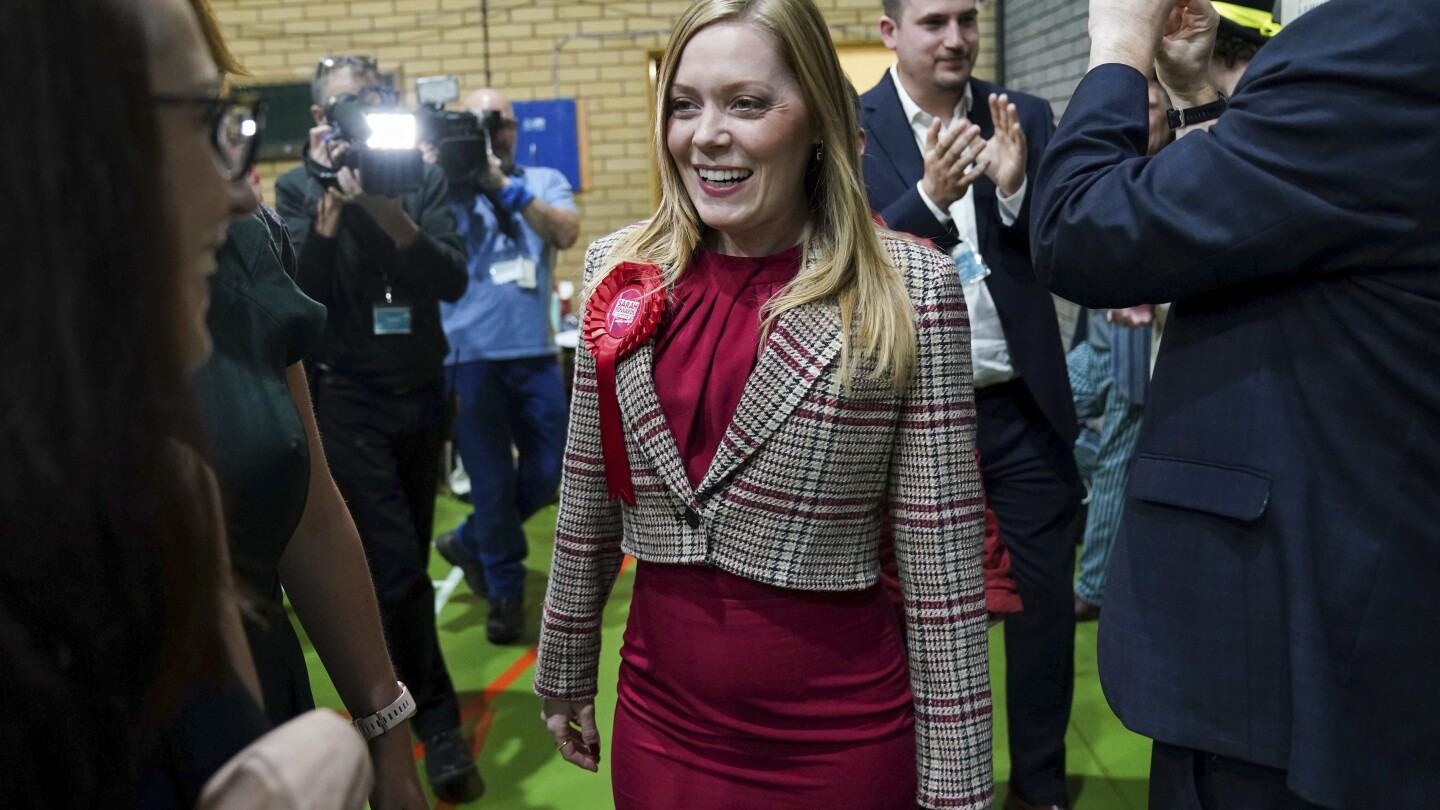LONDON (AP) — Britain’s main opposition Labour Party has decisively won two special elections, snatching seats in Parliament that were long rock-solid bastions of the governing Conservatives.
Results early Friday showed that voters in Tamworth, central England and Mid-Bedfordshire, north of London, switched from Conservatives to Labour in almost unprecedented numbers, solidifying Labour’s status as front-runner ahead of a national election next year.
Labour leader Keir Starmer claimed his party was “redrawing the political map.”
Labour candidate Sarah Edwards won in Tamworth, where the Conservatives won by almost 20,000 votes in 2019, and Labour’s Alistair Strathern took Mid-Bedfordshire by overturning a 25,000-vote Tory margin.
Labour leader Keir Starmer claimed his party was “redrawing the political map.”
John Curtice, a polling expert at the University of Strathclyde, said the “exceptional swings” to Labour could be compared to the collapse in Conservative support under Prime Minister John Major in the 1990s.
“And we all know how that ended,” he said — in a landslide 1997 election victory for Labour under Tony Blair.
Others cautioned that turnout in Thursday’s voting was low, and the elections were unusual because they replaced lawmakers who both resigned under a cloud.
Tamworth legislator Chris Pincher quit after Parliament’s standards watchdog recommended he be suspended for “completely inappropriate” behavior after groping two men at a London private members’ club. Then-Prime Minister Boris Johnson’ s reluctance to sanction Pincher when the allegations emerged helped trigger Johnson’s ouster at the hands of his own party last year.
Mid-Bedfordshire member of Parliament Nadine Dorries resigned over the treatment of Johnson and her own failure to be appointed to Parliament’s upper chamber, the House of Lords. Dorries is a strong ally of Johnson who has blamed Prime Minister Rishi Sunak for helping to topple the former leader.
The results add to pressure on the governing party, which has lost several byelections since Prime Minister Rishi Sunak took office just under a year ago. He replaced Liz Truss, who quit in October 2022 after her plan for unfunded tax cuts sent financial markets into turmoil and rocked the economy.
Truss spent just seven weeks in office after winning a party leadership contest to replace Boris Johnson, who quit after three years in office when scandals over money and ethics turned party lawmakers against him.
Sunak steadied the economy but has not managed to boost the party’s rating in opinion polls, where it consistently lags between 10 and 20 points behind Labour. A national election must be called by the end of 2024.

